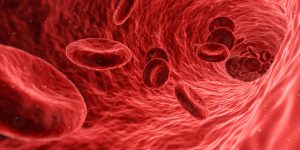New heart disease genetic risk factor discovered
 Atherosclerotic disease – the narrowing of arteries due to plaque buildup – is a leading cause of death worldwide. It causes 15 million lives to be lost each year around the world, with 610,000 deaths estimated in the United States alone. In a new study, researchers have pinpointed one more reason why some people are at higher risk to develop the disease.
Atherosclerotic disease – the narrowing of arteries due to plaque buildup – is a leading cause of death worldwide. It causes 15 million lives to be lost each year around the world, with 610,000 deaths estimated in the United States alone. In a new study, researchers have pinpointed one more reason why some people are at higher risk to develop the disease.
“People with the beneficial version of the genetic factor we discovered have less inflammatory, or less activated, cells lining the blood vessels,” said co-author Casey Romanoski, PhD, in a press release. “It basically means they will be more resistant to building up plaque in their blood vessels.”
A key DNA sequence
The research team, from the University of Arizona and University of Chicago, showed that a common sequence variant in regulatory DNA, called rs17114036 and located on chromosome 1p32.2, affects the vascular endothelium, the cells lining the interior of blood vessels. Their work was recently published in the Proceedings of the National Academy of Sciences.
The job of the endothelium is to smooth and speed blood flow, in particular through complex vascular intersections such as vessel branches. Disturbed blood flow causes chronic local inflammation and formation of atherosclerotic lesions, which in turn lead to complications such as heart attacks and strokes.
The researchers found the rs17114036 variant changes how blood flow patterns affect inflammation, altering a person’s risk of cardiovascular disease. Only about five percent of the population has the protective genetic factor; the majority of people carry a risk allele, which increases the risk of cardiovascular disease or stroke by increasing endothelial response to blood flow disturbance.
Up next, the researchers hope to develop nanoparticles that can replicate the benefits of rs17114036. “Atherosclerosis happens where there is disturbed (blood) flow,” explained senior author Yun Fang, PhD. “If we can make endothelial cells feel like they are exposed to unidirectional flow, there should be less atherosclerosis.”
Further reading
If you work in this area of science, you might be interested in our unique selection of lab-made cardiovascular research reagents, including:
- Integrin and Platelet Factor Antibodies from Blood Center of Wisconsin
- Human Alpha Thrombin Proteins from St. Louis University
- Polyphosphate Chains from University of Michigan
You also might be interested in several of our past blog posts:


